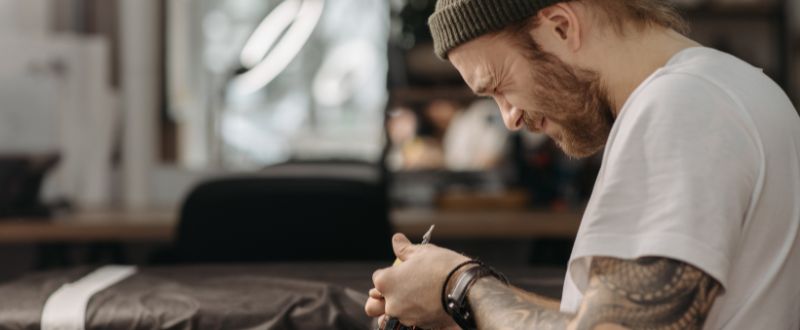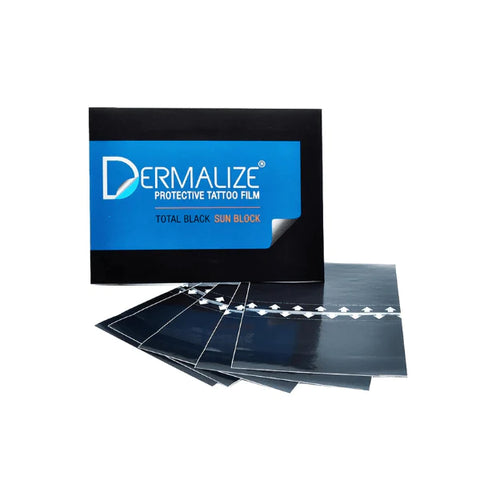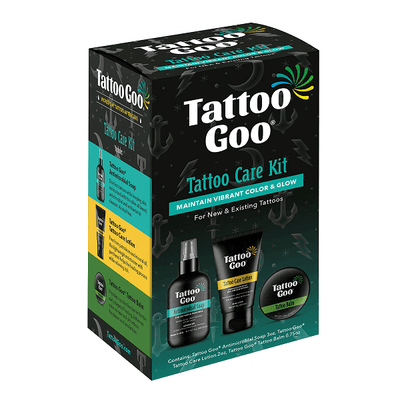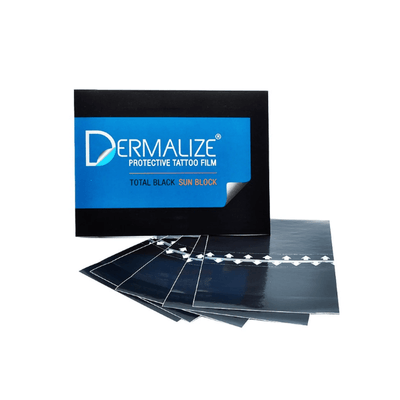Getting a tattoo is more than just choosing a design—it requires preparing your skin, which many overlook. Improper preparation can lead to increased pain, infection, and a tattoo that heals poorly and looks faded or blurred. Hydrated, well-cared-for skin ensures smoother needle application, better ink absorption, and faster healing. So, we'll cover the essential steps to prepare your skin for the best tattoo results.
Importance of proper skincare before getting a tattoo
Proper skincare before getting a tattoo is important because it helps ensure the skin is in good condition, which can lead to better ink absorption and a clearer tattoo. Healthy, moisturised skin can reduce the risk of complications during and after the tattoo process. It also helps the tattoo heal better and last longer. Taking care of your skin before getting a tattoo can make a big difference in how well your tattoo turns out.

1. Hydrate your skin
Hydration is key for healthy skin, and well-hydrated skin takes tattoo ink better. Drink plenty of water in the days leading up to your appointment. This will ensure your skin is plump and resilient, making the tattooing process smoother and helping the skin heal faster.
2. Avoid prolonged sun exposure
Sunburned or overly tanned skin is not ideal for tattooing. Sun damage can alter the texture and condition of your skin, making it difficult for the tattoo artist to work and potentially leading to uneven healing. Wear SPF to keep your skin protected from the sun and avoid sunbathing for at least a week before getting inked.
To keep your skin protected, consider using "Dermalize Pro Total Black Sun Block," a specialised SPF designed to shield your skin effectively, especially before getting inked.
3. Gentle exfoliation
Remove dead skins through gentle exfoliation to make your skin a cleaner canvas for your tattoo. Do this a few days before your appointment to avoid any irritation. Use a soft exfoliating glove or a mild scrub to ensure your skin is smooth and ready for ink.
4. Avoid blood-thinning medications, alcohol or caffeine
Alcohol, caffeine and certain medications can thin your blood that can lead to increased bleeding during your tattoo session. This can affect how well the ink settles into your skin. We advise avoiding alcohol and consult your doctor about any medications you're taking that could interfere with your tattooing process, such as aspirin or ibuprofen, at least 48 hours before your appointment.
5. Moisturise regularly
Start moisturising your skin regularly, a week before your tattoo appointment, to ensure it is soft and supple. This can help the tattoo needle glide smoothly and reduce the risk of the skin cracking after the tattoo is done. Avoid heavy, greasy lotions that may clog pores; opt for light, fragrance-free moisturisers.
6. Shaving or waxing
If you're getting a tattoo in a hairy area, make sure to shave or wax at least 24 hours before your appointment. Doing this too close to your tattoo time can cause skin irritation or small cuts, which can complicate the tattooing process. Ensure the area is smooth and hair-free, but allow time for the skin to calm after hair removal.
7. Choose appropriate clothing
On the day of your tattoo, wear clothing that allows easy access to the area you're getting tattooed and that you don't mind getting stained with ink. Also, choose loose and breathable garments to avoid irritation after the tattoo is done.
If you're getting a tattoo on a sensitive area, plan your outfit to minimise any discomfort on your way home.
Consult your artist about any allergies or skin conditions
Before your tattoo session, discuss any skin conditions or allergies with your tattoo artist. Conditions like eczema, psoriasis, or even sensitive skin can affect how your skin reacts to the tattoo process. Allergies to certain inks, latex gloves, or aftercare products are also critical to mention.
Your artist can tailor the process to ensure your safety and comfort, possibly even conducting a patch test to know how your skin reacts to the tattoo ink.
Signs that your skin is not ready for tattooing

Ensuring your skin is in good condition before getting a tattoo is crucial for the ink's success and the healing process. These are the signs that your skin may not be ready for tattooing:
Visible irritation
If your skin is red, swollen, or inflamed, it may be reacting to something or could be injured. Tattooing over irritated skin can worsen the condition and affect how the ink settles.
Rashes or breakouts
Any form of rash or acne breakout indicates that your skin is currently sensitive or reacting to an irritant. Tattoo needles can exacerbate skin issues, leading to infection or distorted art.
Sunburn
Freshly sunburned skin is very sensitive and damaged. The process of tattooing over a sunburn can be extremely painful, and the damaged skin will not heal properly, potentially leading to fading or blotching of the tattoo.
Open wounds or sores
Tattooing over an open wound or sore is highly risky due to the potential for infection and poor ink absorption. Always wait for any wounds to fully heal.
Dry, flaky skin
Excessively dry or flaky skin may not take ink well, and the tattoo process could cause further drying or damage. Properly moisturise and hydrate the skin beforehand.
Signs of infection
If there is any sign of infection like pus, severe redness, or warmth coming from the skin, it's critical to postpone your tattoo. Tattooing over an infected area can spread the infection and lead to serious health complications.
Allergic reactions
If you see signs of an allergic reaction, such as hives or excessive itching, it's important to identify the cause and resolve the reaction before proceeding with tattooing.
Final thoughts
Prepare your skin before getting a tattoo to achieve the best results and ensure smooth healing. Remember to hydrate, protect, and care for your skin properly to make your tattoo look vibrant and last longer.
For optimal results post-tattoo, continuing to care for your skin is just as important. We offer a range of top-quality tattoo aftercare products. Whether you're looking for moisturisers, gentle cleansers, or soothing balms, our products are designed to enhance your tattoo's healing and longevity.
Shop now on our site and ensure your tattoo remains as perfect as the day you got it!




























































 Studio supplies
Studio supplies












 Power & batteries
Power & batteries







 Aftercare
Aftercare



















 Apprentice
Apprentice


 Piercing & jewellery
Piercing & jewellery







 PMU supplies
PMU supplies



 New arrivals
New arrivals
 Gift vouchers
Gift vouchers
 Shop all
Shop all











































